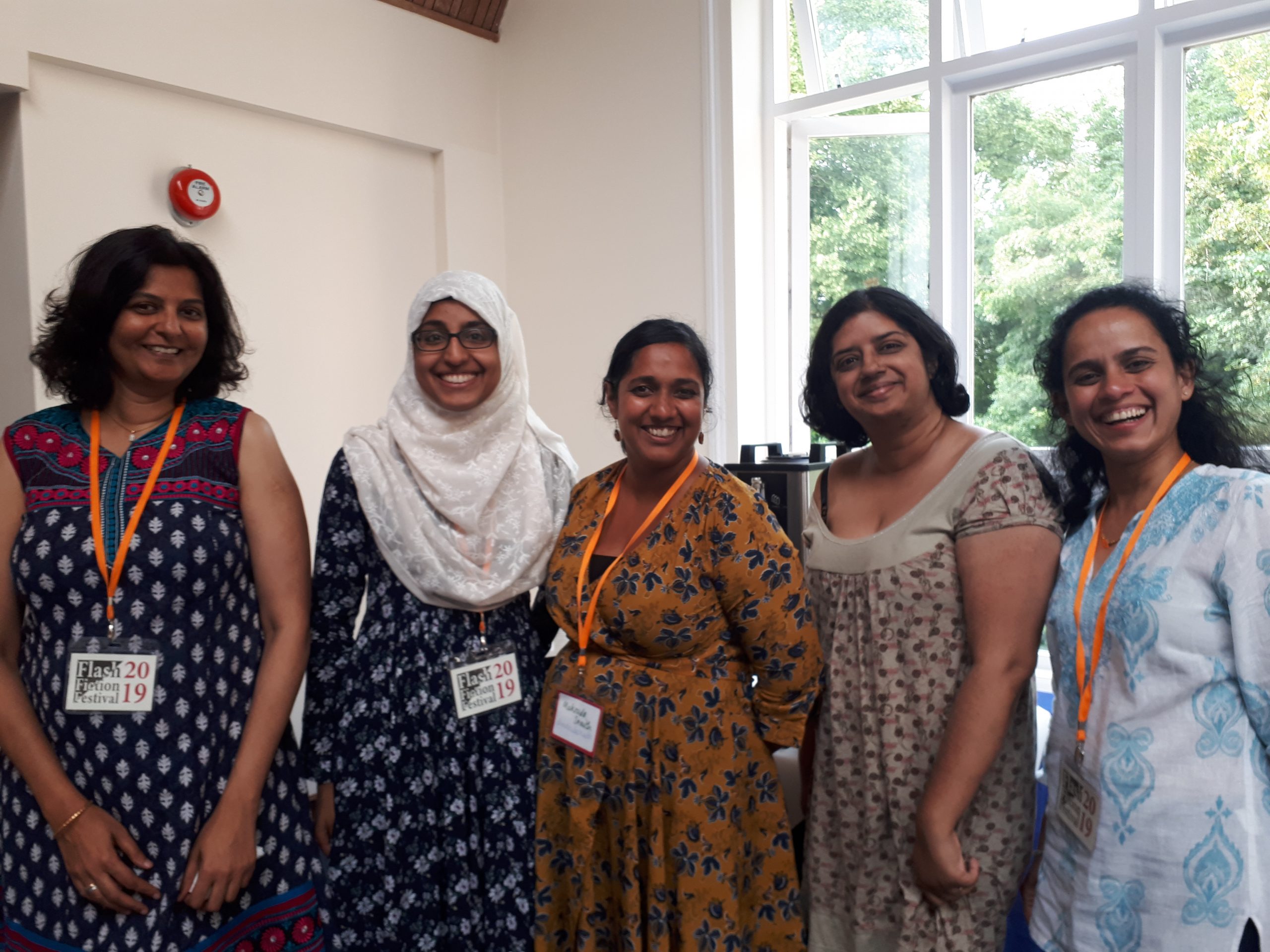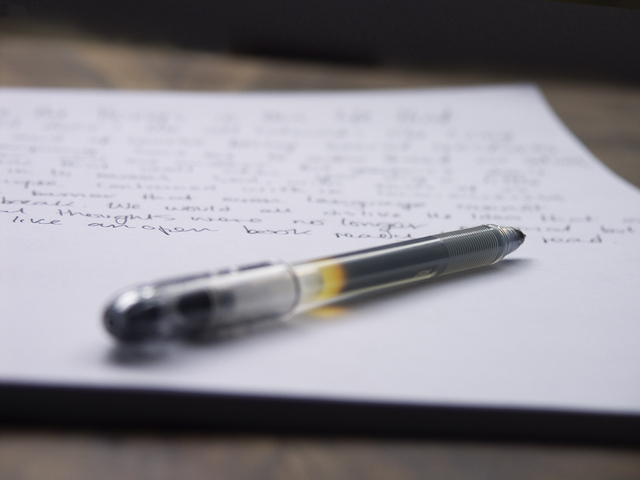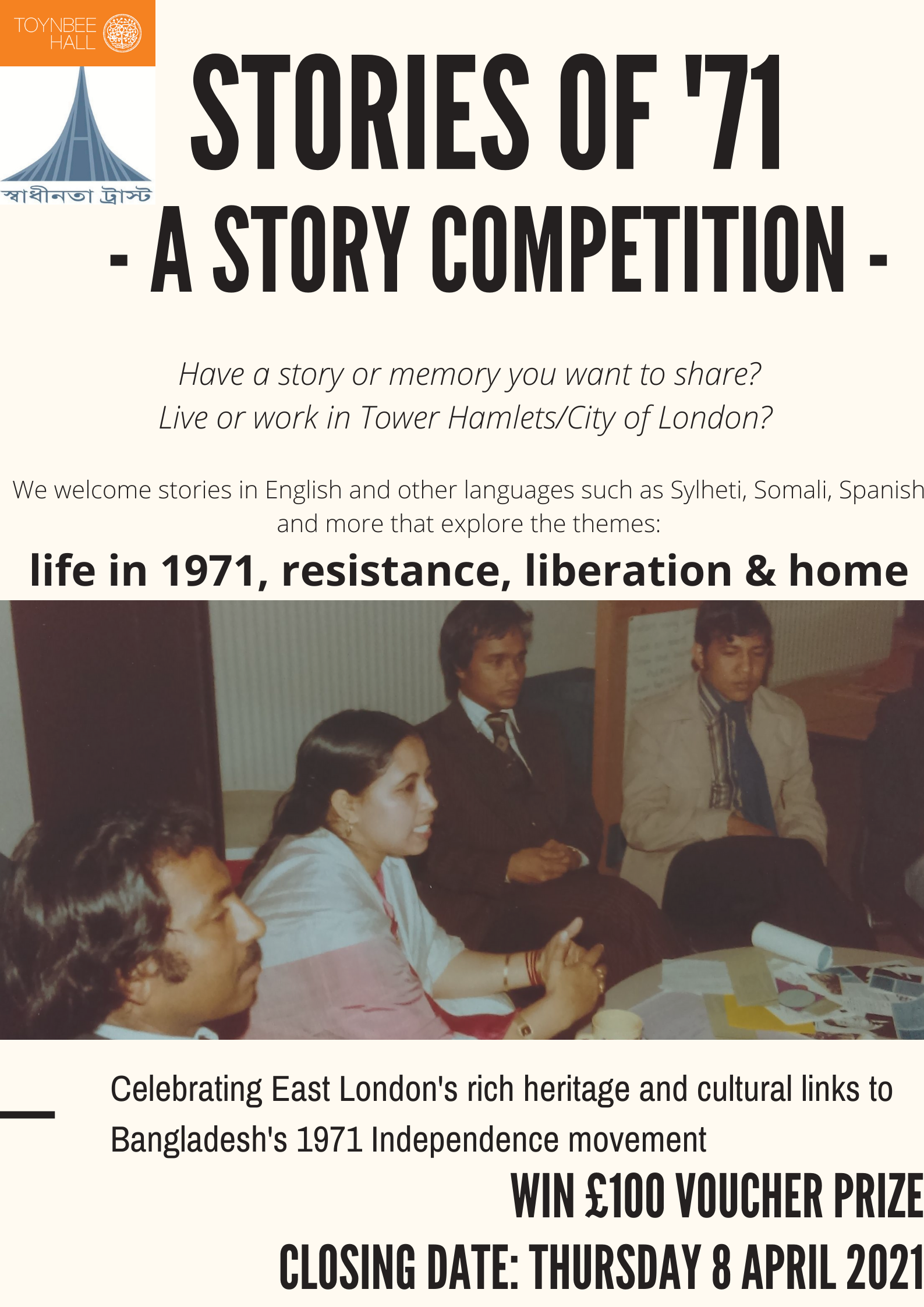BBC Three’s anticipated factual-based drama Murdered By My Father, due to air online today (March 29, 2016), has brought together an exciting cast of British-Asian acting talent from the film, television and online world.
Inspired by real events, Murdered By My Father is directed by multi-award-winning director Bruce Goodison and written by new screenwriter Vinay Patel, and tells the shocking story of the so-called ‘honour’ killing of a 17-year-old girl by her father – in a riveting exploration of how family love and duty can be turned to violence and murder. We caught up with screenwriter Vinay Patel to find out more about more about the drama.
Q. Tell us about your latest project, Murdered By My Father?
It’s a story about of a young woman, Salma, trying to be dutiful to her father, Shahzad, and his plans for her future, but slowly finding herself going down a path that will lead her away from him. Though there is a lot of love between the two of them, Shahzad starts to suspect he’s losing control of Salma and his desperate, unshakeable need to prove himself to his peers leads to tragedy. The title obviously tells you what ultimately happens – but for me the story itself is a family drama first and foremost.
Q. Could you tell us more about the process of being commissioned for drama and what it involves?
In this case, the project was unusual in that it was commissioned by BBC3 out of the in-house Factual department rather than Drama. That meant that there was already a great deal of research being done when I was approached, via my agent, to come in to talk about it. That chat was with the executive producer, Aysha, and the development producer, Marco, where we swapped intentions, hopes and concerns. Luckily, we were all on the same page with all three of those. For me, Aysha’s involvement was critical. She’s a British Pakistani woman for whom this has been a passion project for years. It’s a topic close to her heart and hearing that make it easier for me to come on board. I’m not sure I would’ve accepted if it if not for her. Who you work with on something like this and why they want to make it matters to me a lot.
Q. As an up and coming screenwriter were you reluctant about tackling factual drama such as this, and if so, why?
I was very reluctant. In my head is a list of topics that I, as a British Asian writer, didn’t want to tackle. High on that list was a story involving an honour killing. Partly that was me feeling I didn’t want to do anything to denigrate a group of people that already come in for enough trouble and partly, more selfishly, it was not wanting to get pigeon-holed into writing “issue” drama.
However, when I started to read some of the preliminary research I started to see how there was scope to build a fully fleshed out story that wasn’t just a simple retelling of a story that would be better served as a documentary. I pitched Arthur Miller’s A View From The Bridge as my dramatic touchstone for the the project – the tale of a man who could stop terrible things happening if he could only move beyond his pride and insecurity. So right from the start I tried to see it in terms of the drama and not the issue as much as possible. There was a strong story to be told here.
Having said that, when you hear the real stories, frankly, it’s hard to not feel invested, like you want to be involved in anything that could stop some of those playing out again in future. It made my objections of not wanting to be seen a certain way as a writer feel very small indeed, especially since in a lot of these cases the girls involved feel scared about leaving or talking about what’s happening to them because they worry that people won’t understand what’s going on. Looking back from the end of the process, hearing that one of the charities we worked with likes the programme and wants to use it in schools was one of the best feelings I’ve ever had as a writer.
Q. What were the main challenges for you as a writer working on a story that is often sensationalized?
The main challenge was to try and get a feeling for what I thought the audience will bring into it from what they might have heard in the ether or on the front pages of the newspapers. That is both in terms of the crime as well as the people involved. To push against this, I knew we had to give the father a real humanity. He needed some unexpected angles to him. But also I wanted the daughter to not be this sweet, simple girl who is the victim of a horrific crime. I see that trope in dramas such as these a lot and whilst I can see how it feels morally right to have the victim be unequivocally nice, I was keen to avoid it. Not because I wanted to imply blame on the victim’s part but because I wanted her to feel real. I remember my sister when she was 17 – I loved her, but she was an utter nightmare. Salma, for me, needed to be a little spiky with others, a little closed off – living with a lifetime of secrets just to please your parents can do that to you – even a little unlikeable at times. But I hoped this would make her more interesting, complex and ultimately relatable than the simple tabloid portrait.
After the fact, there is a whole other challenge in dealing with the idea of what you present doesn’t feel people’s perceived sensationalised narratives. As an example, the show doesn’t focus on religion, because that’s not generally a direct or meaningful factor in these crimes, but you just know there will still be people who are going to attack you for doing what, actually, the research bears out. I had to accept very early that there would be difficult responses, no matter how good a job we did.
Q. What were you keen to bring to the project so people don’t have that feeling that the issues are being misrepresented or not explored in a way they should be?
I think if you’re going to tackle this subject, you have both a factual and dramatic responsibility. By the latter I mean you have to give every character – even the ones you don’t like and who might even seem quite monstrous – a shot at being a complex, understandable human being. In that way, if there is to be judgement to be made, it is of that character. By fighting hard against stereotype, the hope is that you avoid homogenising a crime and ascribing it to an entire group of people, the vast majority of whom would be horrified by it.
With the former, it was about working with the right people to make sure you don’t misrepresent the issue or the people involved. There are of course different iterations of the same crime, so this wasn’t necessarily about replicating an exact chain of events as making sure the emotions and the pressures felt accurate. We worked with a couple of charities – mainly IKRWO but also Karma Nirvana – both in the research phase and afterwards once the script was written to make sure we were accurate as possible.
Q. Do you think as a screenwriter if you go looking for humanity, you find it in places you don’t expect?
I think so. With regards to this project, it was in small ways with people who you come in not wanting to get anywhere near to – those who murder their loved ones for the sake of reputation. There’s a section in Rana Husseini’s excellent book, Murder in the Name of Honour where she talks to men who have been imprisoned for honour violence. One young man, having killed his sister, is eventually released from jail and is staggered to believe no-one wants to marry him because they fear he’ll do the same to their potential daughter one day. Another found himself grappling with his religious nature – he felt like his God would judge his actions terribly but that he would accept that consequence because it felt like the right thing to do. These little glimpses of humanity – one man absurdly unaware of himself to an almost comic degree, one grappling with the biggest fundamental questions – were the sort of insights that I needed to find a way in to a character who will become irredeemably monstrous to us but was once so very human.
Q. Tell us more about the writing process and your mindset at different stages of the project?
The first step was immersing myself in the research. This was books, reports, first-hand written and audio accounts and, as you might imagine, was quite intense in terms of subject matter and quantity of material. I was also sure to watch every documentary and every drama that dealt with honour violence that I could find. I wanted to be sure that what we were putting together did not exist yet.
Once you’ve taken in that research and feel you reached a fair understanding of the material and a grasp of what the characters are about, you have to let go of the research completely for a bit and try and shape the story as effectively as you think it can be. This doesn’t mean the research is any less important, just that it stops being useful after a point. After the script has gone through a few drafts (with feedback from the exec, the producer and director in between) and you feel like you’ve crafted something dramatically satisfying, you can return to it, but not yet. I wrote rough outlines for the shape of the characters’s arcs and biographies for the main characters. It was important for the whole team to agree on whose these people were before we moved forward.
From there, with some initial locations in mind, I hit the script and the writing and redrafting process was the hardest I’ve ever undergone. I come from a theatre background, where you’re looking at a play to go through maybe two years of development. Here, I came on board in late May and we were shooting in October. Not a lot of time at all, but it became my sole focus for those months and I think with the help of the development team, the producer, Toby, and the director, Bruce, we’ve done the story justice. Whilst it almost seems pathetic to say it, immersing myself in this story took a toll on me in a way no other project has. I couldn’t even get it out of my head for months afterward. In a way though, that seems just. I’m not sure you should do a project like this if you can’t let it into your soul somehow, for better or worse. It makes you all the more grateful to those who work to prevent honour violence and willingly live with that every day.
Q. What involvement did you have with actors? Do you visit the set and see your words played out?
We were lucky in that we managed to have some rehearsal time with this project. As I understand it, that’s quite rare in television – but it was a total blessing for something like this where you want to create a truthful family dynamic. The script wasn’t locked at this stage and I was re-writing around what I saw in the rehearsal room. There were some interesting shifts based on how the different actors looked and what qualities they brought as people. For example Adeel, who plays Shahzad, has a slightly softer presence than I original envisaged, so we went through a process of removing some of that softness from the script itself.
Also, craft wise, actors can do with a look what you do with a paragraph and seeing them do that is one of those times you’re very happy to cut words.
Q. What resources would you recommend for writers considering writing for screen?
My favourite screenwriting book of the last few years is an e-book called Screenwriting 101 by Film Crit Hulk. It’s a guy who tweets as if he’s the Hulk. In all caps. But the book is fantastic in loosening up your way of thinking about structure and putting it back together in a practical way. There is also a non-all-caps version in it, thankfully.
I’d also encourage people to read books about directing. It’s a visual medium after all, and getting a handle on the director’s process of translating words to the screen is handy. As a starting point, you could do worse than Alexander MacKendrick’s On Film-Making. As a director, he was involved in the Ealing comedies way back when so it’s a little old school but it’s a wonderful grounding and he also talks with great clarity about scriptwriting. Sidney Lumet’s Making Movies is also a delight. The way he picks apart how he filmed 12 Angry Men was a real eye-opener for me. Just because you’re shooting a film in a room, doesn’t mean you don’t think about the visual language.
Q. There’s been a huge push to tackle the lack of diversity on our screens. How can actors and writers work together to ensure equal representation for minority voices? Can we challenge the status quo?
In theatre this collaboration is already happening in terms of pressure through groups such as Act For Change, who are a real force for good. In TV, I think people are waking up to it too and I’ve noticed a plethora of schemes targeted specifically at BAME talent. Some might turn their nose up at such opportunities, but we’ll only really change things if we change things behind the camera as well as in front of it. I always say you ultimately want not just diversity but diversity in the diversity and truthfully, I think you only really earn the right to make shows like Murdered By My Father which tackles an issue –a form of drama that can seem overly familiar to minority audiences – when you also present the public with work that has diverse people in diverse roles. It’s not all that much to ask. Especially since people in the audience want it too. The success of shows like Master of None and Fresh Off The Boat – both fascinating (and importantly mainstream) takes on minority characters and their lives – proves this.
One of the joys of the last few years for me is meeting and working with so many creatives from all sorts of backgrounds who are pushing for that to happen. Comedies. Romances. History pieces. Sci-fi. I think it’s coming, there’s a critical mass out there making inroads, and I can’t bloody wait to see what becomes of it.
Murdered By My Father is available from 6pm on March 29 on BBC3


